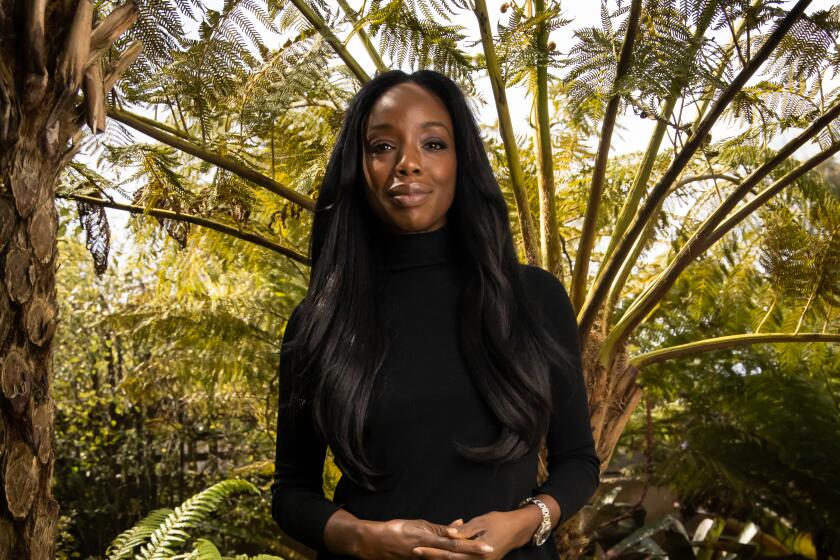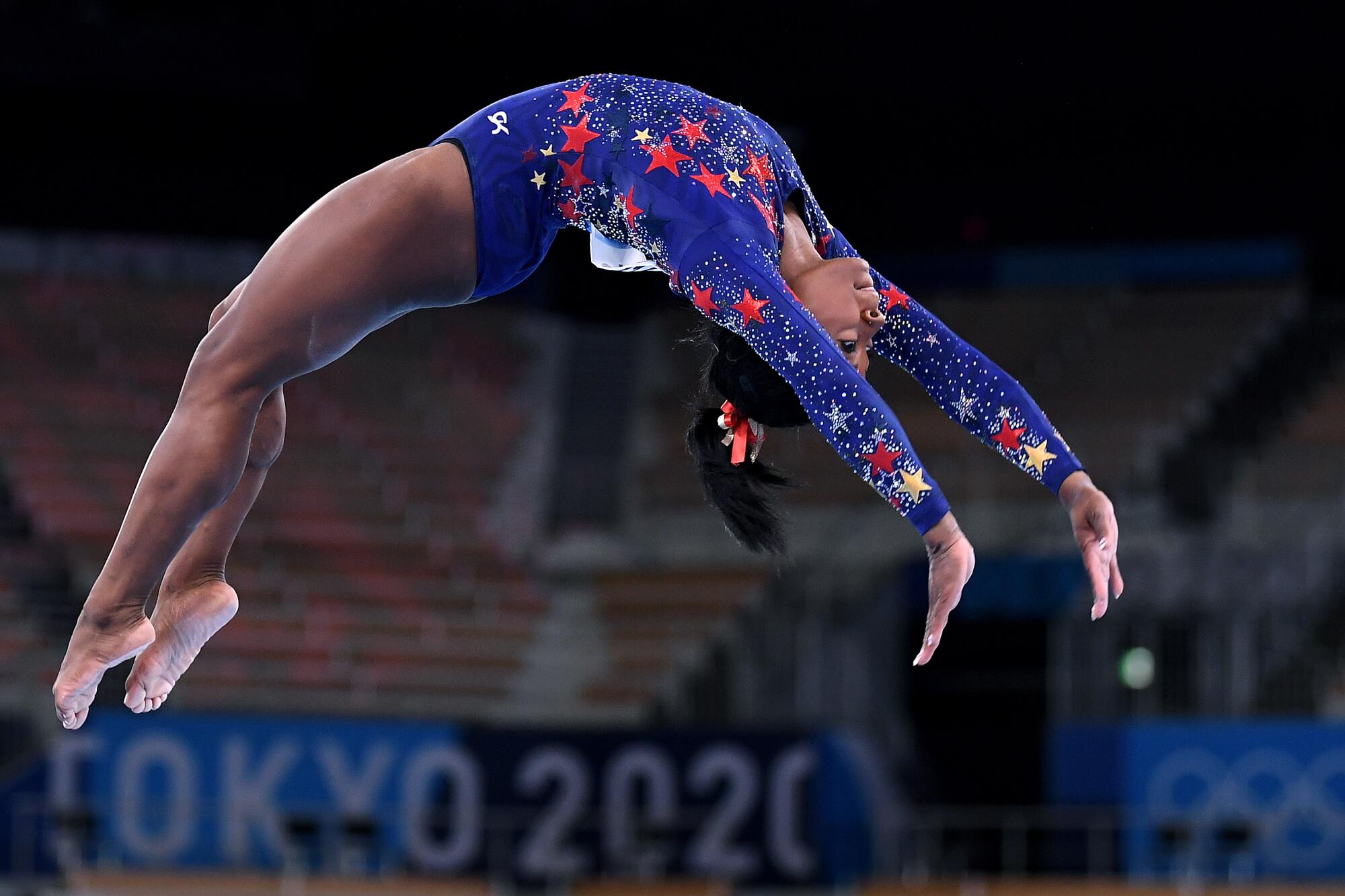
Surrounded by adoring fans who came bearing flowers and balloons, Simone Biles returned home to Houston a couple of days ago. In my mind, that brought the Tokyo Games to a close.
Yeah, I’m that much of a fan.
There have been — and, I imagine, will continue to be long after Sunday’s closing ceremony — many postmortems written about these Olympics and about Biles, the greatest gymnast of all time, who put self-care above medals.
Indeed, it was a brave decision to withdraw from most competitions after getting “lost in the air” during a vault and learning that an aunt had died. It prompted a much-needed conversation about how athletes deal with trauma and how a pervasive, winning-at-all-costs philosophy encourages them to ignore it.
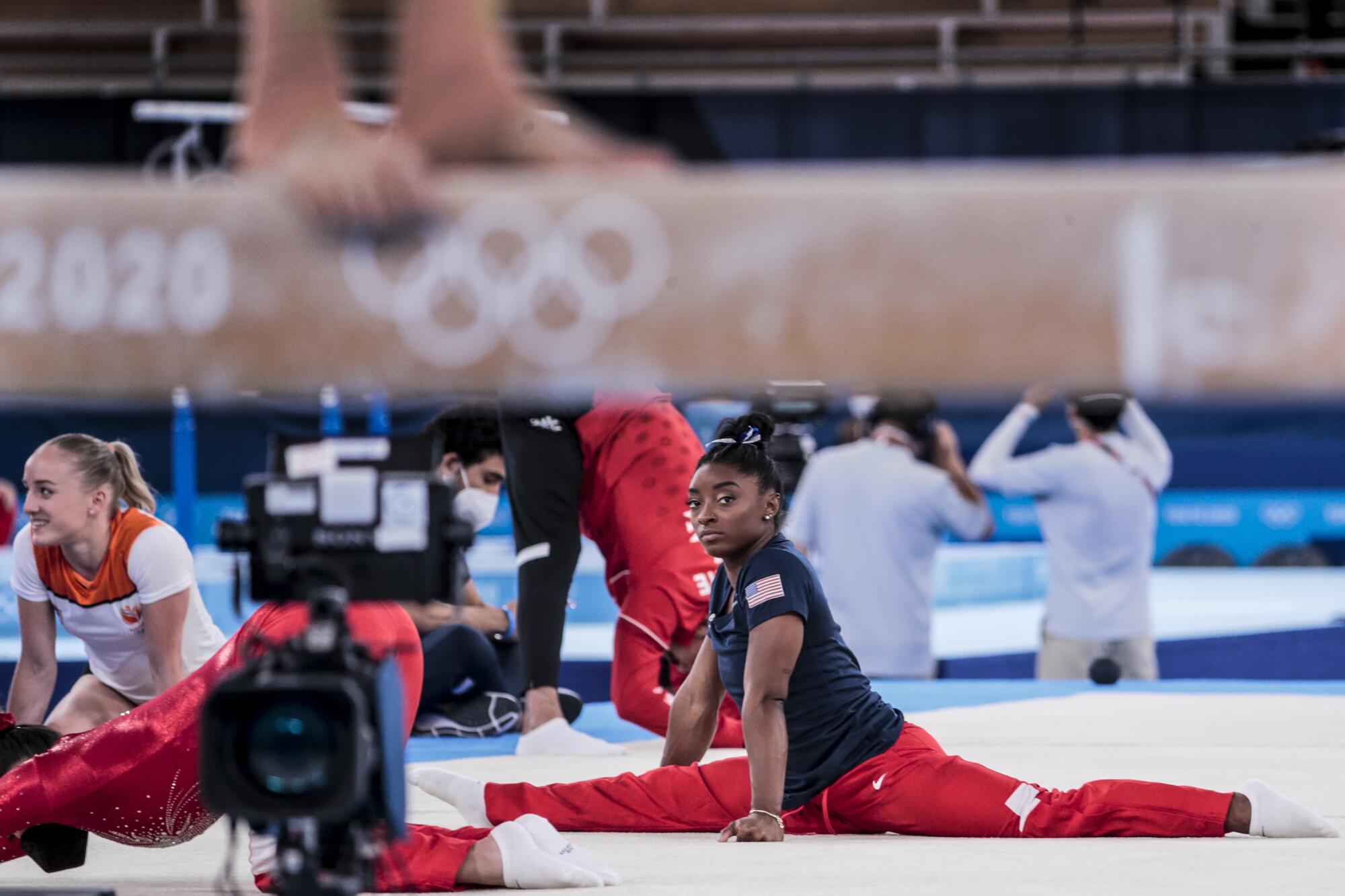
But from where I sit, surrounded by Black Californians traumatized in one way or another by the never-ending COVID-19 pandemic, what Biles did has opened the door to much more than that.
In the same way Biles has inspired many in the sports world, she may inspire other Black people to be more proactive about addressing their mental health — and at a time when the need to do so has never been greater.
Consider that, throughout the pandemic, Black Americans have endured extraordinary trauma. There have been a disproportionate number of deaths from COVID-19, especially here in Los Angeles, as well as a massive economic toll from lost jobs, lost wages, lost family businesses and lost housing. And that’s on top of last summer’s racial reckoning.
Meanwhile, the loss of parents and grandparents to COVID-19 has left many Black youths particularly vulnerable to traumatic stress, often manifesting as anxiety and depression.
Even before the pandemic, studies showed that Black adults nationwide were more likely than white adults to report persistent symptoms of emotional distress, including hopelessness.
And yet, according to the federal Office of Minority Health, only a third of Black Americans who need mental health care actually get it.
Get the latest from Erika D. Smith
Commentary on people, politics and the quest for a more equitable California.
You may occasionally receive promotional content from the Los Angeles Times.
Few understand this dilemma more than California Surgeon General Dr. Nadine Burke Harris.
For more than a year, she has been crisscrossing the state, helping to train nearly 20,000 healthcare providers to recognize and treat their patients for toxic stress and trauma. It’s all part of her initiative ACEs Aware — short for adverse childhood experiences — which took on a new urgency with the pandemic.
“It’s definitely a huge concern for me what the long-term impacts will be, in terms of our well-being and physical and mental health as a result of the huge stressor and disruption [of] COVID,” she told me.
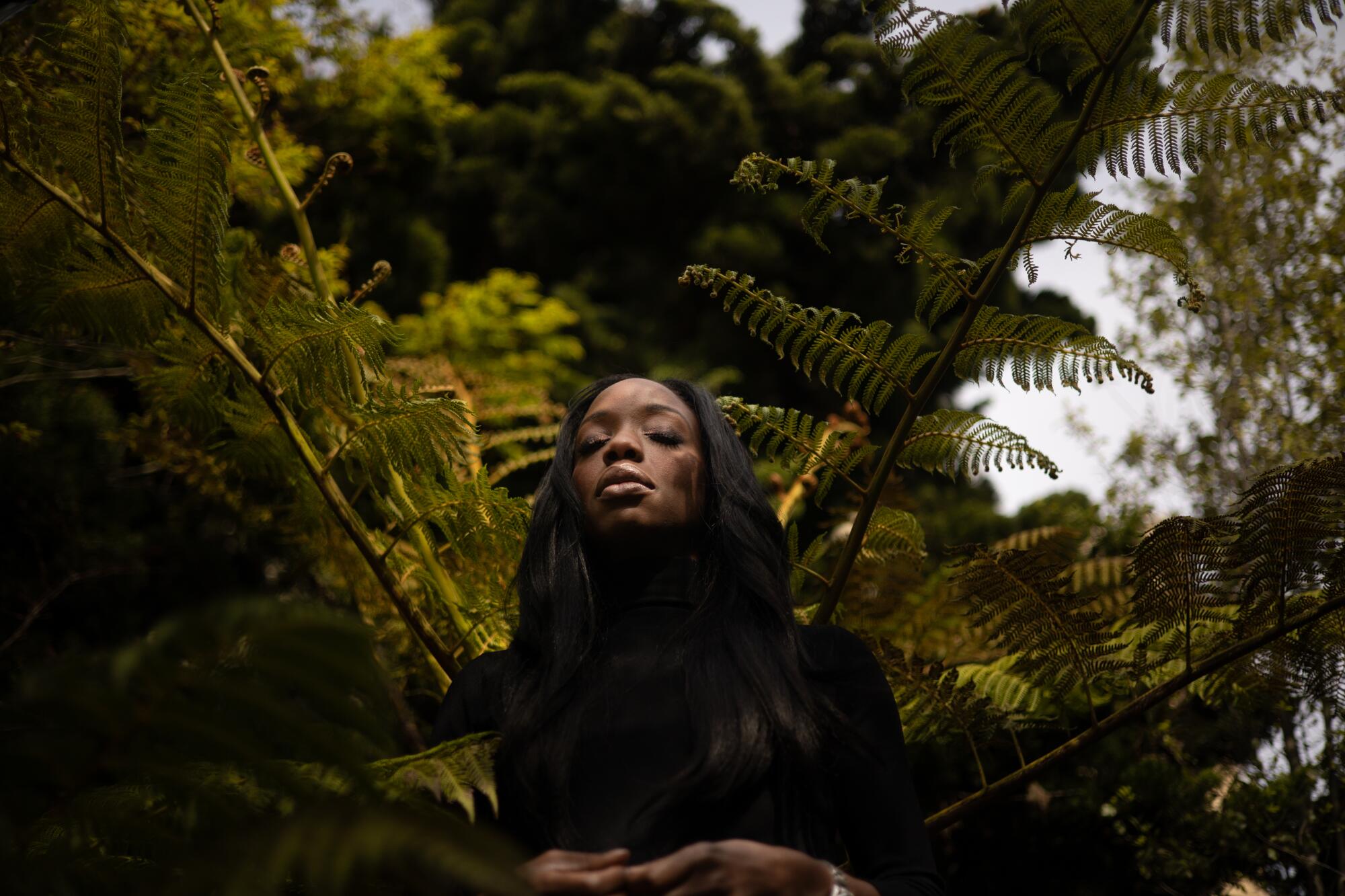
And as Black woman, Burke Harris has been particularly concerned about whether Black Californians would be willing to get help for trauma, even as the coronavirus continues to sicken the many Angelenos of color who remain unvaccinated.
“It’s a cycle, right? The higher the infection and death rates, the greater the impact to the community. And the greater the impact on the community, the greater the fallout in terms of our mental and emotional well-being.”
But, she added, “we don’t want to talk about it. And I think that it makes it really hard to heal.”
That’s why it was so transformative to see Biles, a young Black woman idolized by many, declare on Instagram that “physical health is mental health” and talk openly about meeting with a sports psychologist.
“I sent out a little tweet to shout her out,” Burke Harris recounted excitedly over Zoom, “because, like, her language was so different than the conversation that has happened in the past — that the mind and body are not separate.”
Burke Harris cited a recent finding that 63% of Black Americans believe that having a mental health condition is a sign of personal weakness. It’s a reason, researchers say, many of those same people are reluctant to talk about it, fearing discrimination and rejection if they do.
Of course, there are many other reasons Black people are wary of therapy. Among them is a long tradition of systemic racism within the nation’s healthcare system that often translates into a lack of access to qualified mental health professionals — especially those of color.
“I get emails literally like, ‘Where can I find a black therapist?’ ‘Where can I find a Spanish-speaking therapist?’” Burke Harris told me. “And so we really need to recognize that cultural and linguistic representation and also [cultural] competency are really critical aspects of workforce development.”
There’s also the grim reality that “seeking help” in the midst of a mental health crisis often means calling police — which, as we’ve seen in far too many body-cam videos, can easily end in tragedy for those who are Black or Latino.
Dr. Nadine Burke Harris has become one of the nation’s most influential public health figures while guiding California’s efforts during the pandemic.
But perhaps the biggest reason for the wariness is the stigma and shame surrounding mental illness.
Enter Biles, with her unapologetic dedication to self-care at the Tokyo Games.
After a triumphant return on her own terms and a victory that gave her the bronze medal on balance beam, the Olympian told NBC: “If you would have asked me a couple years ago, I would have kept pushing through, but I’m at the age now where I kind of control my own mental well-being, and I knew that it was the best decision for the team and myself.”
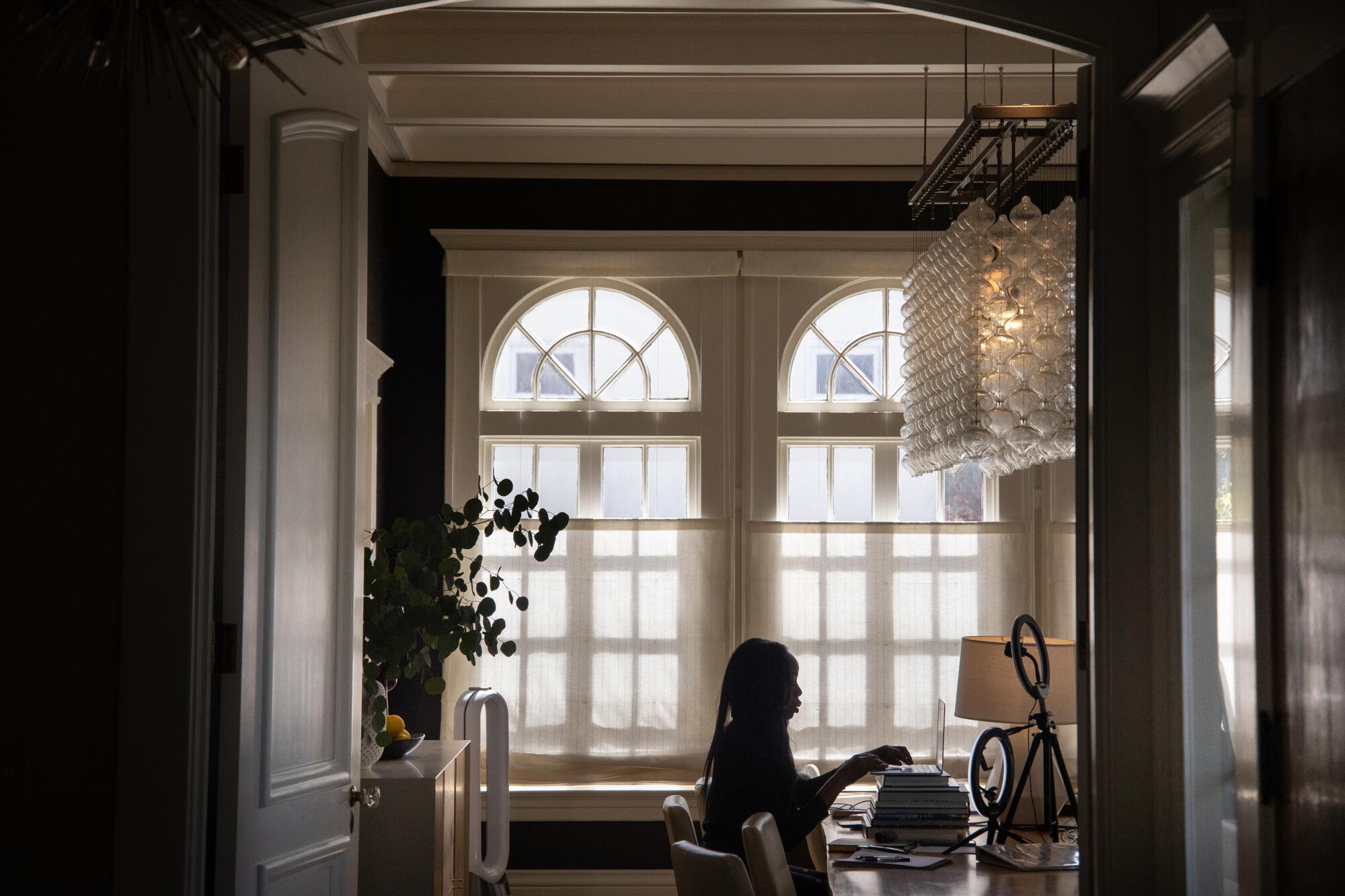
And this comes after equally unapologetic fellow Olympian Naomi Osaka pulled out of the French Open and Wimbledon to take a mental health break, admitting that she had “suffered long bouts of depression.”
“I do hope that people can relate and understand it’s OK to not be OK, and it’s OK to talk about it,” Osaka, whose father is Haitian and mother is Japanese, wrote for Time magazine earlier this year.
Burke Harris called both athletes’ actions “incredibly courageous.”
“We’re talking about Naomi Osaka, who was like, ‘OK, I’m going to step out of this, because I really am putting my mental health and my well-being first,’” she said. “That is significant.”
She likened it to her favorite series, HBO’s “Insecure,” in which the Black characters regularly talk about self-care. “When I watch that, I just rejoice. It brings me so much joy to see the changing of the narrative,” she said.
The question is whether all of this newfound openness will be enough.
I’m going with Biles on this one.
“I definitely think we’re on the right road for a different path,” she told NBC. “And the next generation, you can already see it. They have some different rules in place for basically everything now.”
More to Read
Get the latest from Erika D. Smith
Commentary on people, politics and the quest for a more equitable California.
You may occasionally receive promotional content from the Los Angeles Times.
